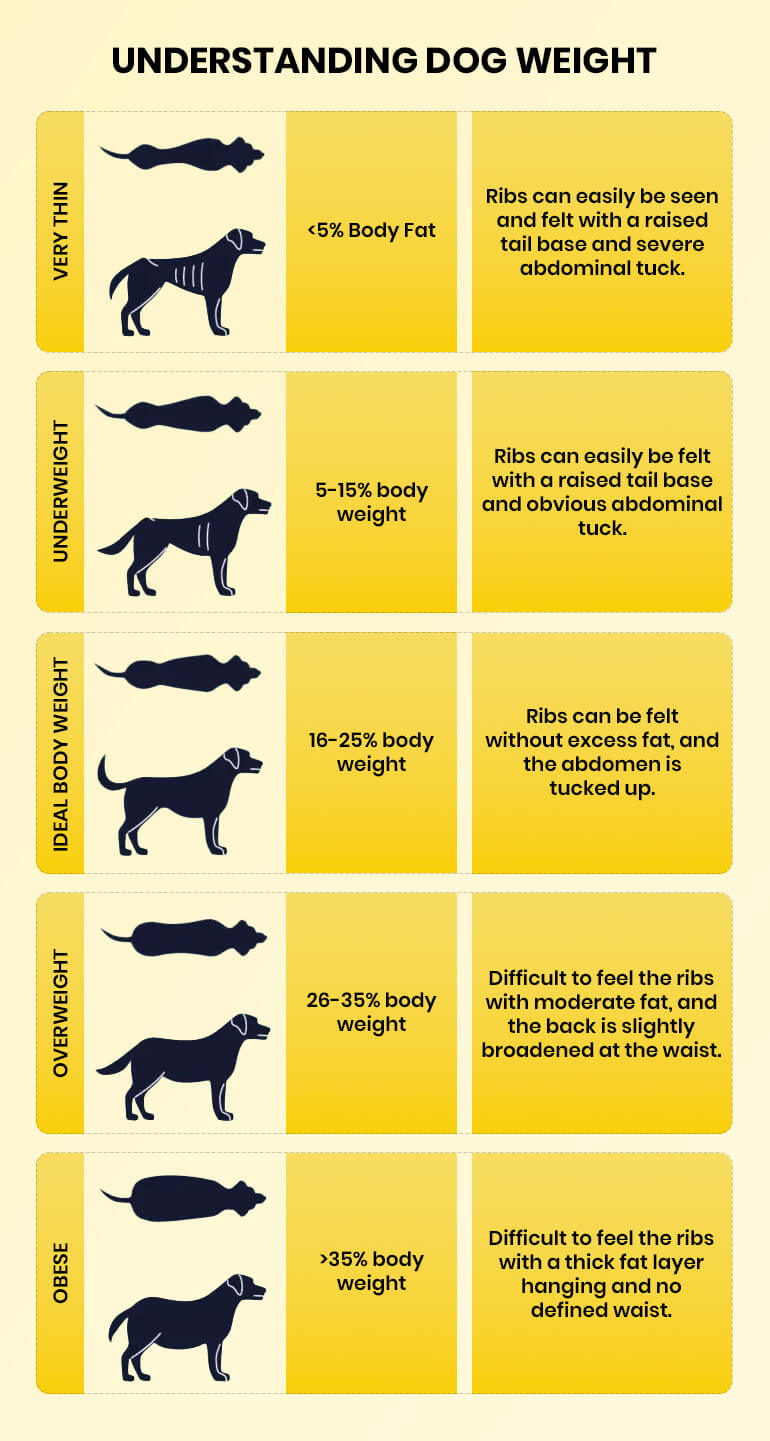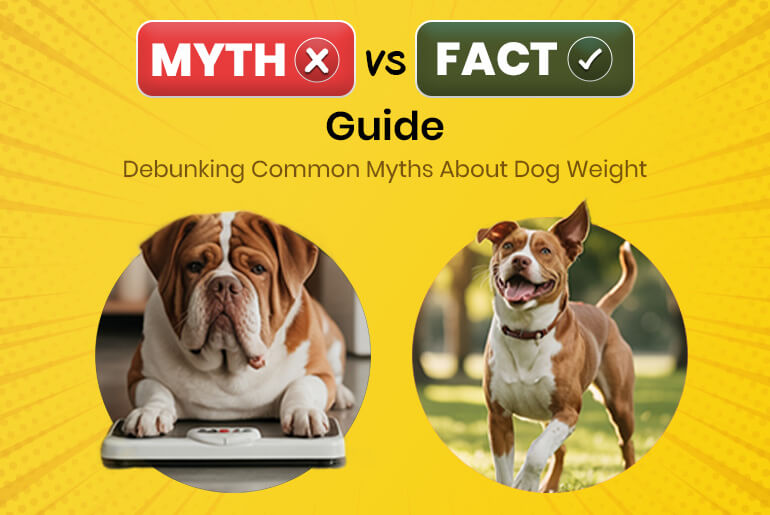While a chubby dog may look cute, they may not necessarily be healthy. Those extra pounds may put them at risk of potential health issues such as heart disease, arthritis, bladder stones, liver issues, or urinary health issues. As a responsible pet parent, it’s crucial to keep your dog at a healthy weight. However, there are several myths regarding dog weight that may cloud your judgement, leading to over- or underfeeding.
In this informative blog, we’ll take on some of these prevalent myths and attempt to resolve them by stating counterfacts. Having this knowledge will help you avoid making the same mistakes and ensure your furry companions’ health and happiness.
Before we get to the myths and facts, let’s quickly understand what is considered an ideal weight in dogs!
Understanding Dog Weight
The following dog weight chart shows the various levels of body conditions. Knowing this, you can ascertain your dog’s condition and maintain an ideal body weight with proper diet and exercise.

Common Myths and Facts About Dog Weight
Now that you know about the ideal body weight condition in dogs, let’s understand the common myths among dog parents about dog weight. We’ve also included the facts to help you rectify if you’re making similar mistakes.
Myth: It’s okay for dogs to be naturally chubby.
Excess weight in dogs can be directly linked to various health issues, including arthritis, heart disease, kidney issues, liver issues, high blood pressure, urinary issues, etc. So those extra pounds carried by your dog may prove to be dangerous in the long run.
Fact: Maintaining a healthy weight is essential for all dogs.
Exercise is important for dogs of all ages. It can include simple activities, such as going for a walk, playing fetch, or other interactive games. You can create a thoughtful exercise routine to keep their weight and health in check.
Myth: Low-carb or fad diets are healthy for dogs.
The grain-free, low-carb, and fad diet options seem appealing, but they may be lacking in essential nutrients and minerals. This may leave your beloved dog malnourished. Your intentions may be right, but feeding your dog without the right knowledge will not support their health.
Fact: Feed a balanced diet that fulfills their unique nutritional requirements.
Feeding a balanced diet to your dog will help you control the calorie intake and also prevent overeating. It’s best to consult your veterinarian to ascertain your dog’s nutritional requirements and get a suitable meal plan. You can also take professional advice about the brand and type of food to feed.
Myth: Dogs should have access to food at all times.
To fulfill the nutritional needs of your dog, you don’t need to provide 24/7 access to food. More often, this may lead to overeating and putting on unnecessary weight.
Fact: It’s important to feed specific portions on a schedule.
You should divide their meal into portions and feed them as per a suitable schedule, approved by the vet. Also, remember that the instructions on the label are just a starting guide. You may need to adjust the portions as per their activity, age, or weight in consultation with your vet.
[Also Read] You Can Share These Nine Healthy Foods With Your Dog
Myth: There’s no need to keep track of treats.
Treats are undoubtedly a great way to strengthen the bond with your dog and train them. However, if you don’t keep a tab on them and don’t give them thoughtfully, you may be contributing to unwanted weight gain, which can be problematic.
Fact: Treats should make up no more than 10% of any dog’s caloric intake.
Treats are good for rewards or training, but they cannot be used as an alternative to food. They are essentially made for intermittent feeding, and giving more can lead to nutrient imbalances. Thus, it’s best to stick to the thumb rule of limiting it to no more than 10% of total calorie intake.
The Bottom Line
Obesity in dogs is a serious concern, but it can be prevented with careful measures. We hope the facts shared in this blog helped fill the gaps in your knowledge. Now you can take the right steps to maintain an ideal weight for your dog. In any case, it’s best to consult your vet for professional advice. They will examine your dog and give personalized suggestions based on your dog’s condition and medical history.





